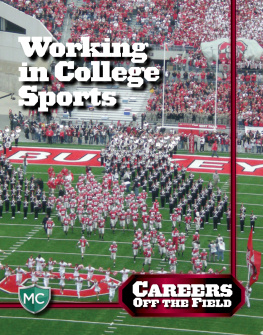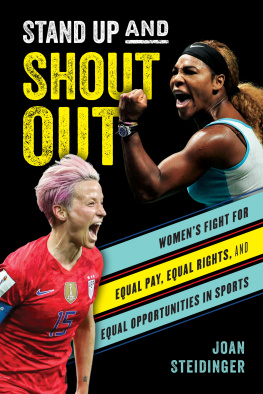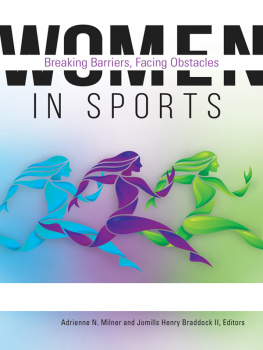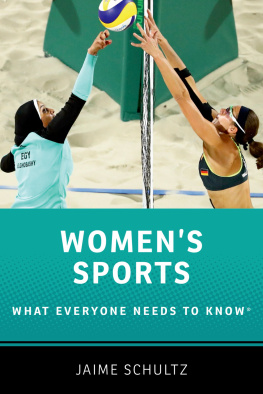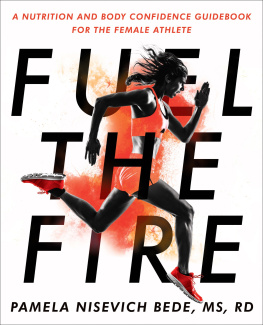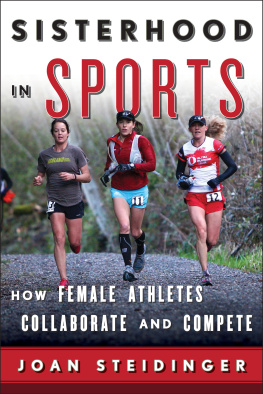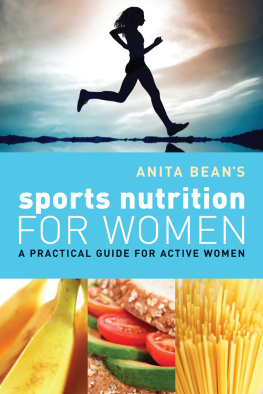Chrissie Wellington
Four-time Ironman World Champion
Sport and physical activity change lives.
That fact is irrefutable.
Yet, statistics tell of falling participation in physical activity and sport among women, and growing disengagement of young girls. Not that we need data to tell us of the deep-rooted, endemic problem. We only have to look around us to see sedentary lifestyles, obesity and a vast array of other health problems. The benefits of regularly participating in sports and physical activity are well known and unequivocal. Increasing participation in physical activity and sport by all men and women is an investment in the overall economic, cultural and social health of our nations, and world.
I have gone from being a relatively sporty school girl, to a disengaged year old, a relatively unsporty university student, a running mad civil servant, an amateur triathlete, a professional and finally a retired athlete. For me, school was a key channel for developing, cultivating and nurturing my passion for sport and the skills, physiology and characteristics necessary to succeed in sport at a higher level.
It also installed activity in my own daily lifestyle up until the age of or . I was fortunate to be taught by passionate, enthusiastic and well-trained PE teachers, who stimulated my sporting passion and ability. My parents tirelessly ferried me to and from activities, and humoured me as I ran around the garden barefoot trying to emulate my idol, Zola Budd. I gave up structured sport aged around , and only took it up again during my Masters degree when I discovered running. From there a passion for endurance sport was born and resulted in a foray into triathlon, which was to become my career. I achieved more than I could have ever imagined as a professional triathlete and have now retired, convinced more than ever before of the power of sport to change lives.
Overall I feel that I am one of the lucky ones. While, yes, there have been hurdles to overcome, I feel that my gender has never held me back from achieving my dreams. As an athlete I was fortunate to take part in a sport that, despite its faults, is relatively egalitarian from a gender perspective. Women race on the same day and over the same course as men. At the professional level, the prize purse is the same for men and women, opportunities for sponsorship and media coverage are, in my view, equal between the sexes, and the ratio of men to women (at the shorter races and within triathlon clubs) is becoming increasingly even.
The reasons are many, but include the fact that triathlon is a relatively new sport, and that from its genesis women have participated with men at the professional and amateur level. The amateurs race simultaneously with the professionals (hence the male and female amateurs see professional women competing and can be inspired by our performance). Women hold high-level positions on the various national and international federations, while editors and journalists for a number of triathlon publications and websites are women. At the grassroots level in the UK, the or so triathlon clubs that currently exist welcome women and families, and offer a cocoon of support and encouragement which is backed up by extensive online information resources.
As this thought-provoking book shows, we have a wealth of athletes at the elite level who have helped to create this platform of opportunity for athletes like me. We see pioneers like Billie-Jean King and Roberta Gibb who paved the way for women to have an opportunity to take part, both at an amateur level and professionally. We have women who are carving out a path in male-dominated arenas such as cycling, football and cricket. We see those who are challenging stereotypes and cultural barriers simply by taking part. These women are leaving a legacy that goes far beyond times or medals. Its a legacy that will endure and help change the face of the global sporting landscape.
However, despite the rays of light, we know that the overall picture is far from rosy and we see many sports that are languishing far behind in terms of equality in governance, participation, event and race opportunities, and commercial sponsorship.
Ask yourselves How can it be right for the champion of the most prestigious multi-stage female cycling race, the -day Giro Rosa, to be awarded when the winner of the Tour de France pockets ,? How can it be right to have to search with a fine-tooth comb to see a story on a sportswoman on the back pages of a mainstream newspaper? How can it be right that only per cent of the boards of National Governing Bodies for sport in the UK are female?
The impact of these rules and traditions are grave, and go far beyond the professional sporting sphere. This book casts a thorough, much-needed eye on many of these questions. It is only by having such a spotlight shone on this subject that we can begin to find lasting solutions.
Let us not look back in or years time and rue the day that we did not strive to change the status quo. When it was normal for women to be told, as the former managing director of Birmingham City FC, Karren Brady, was, that: You are going to have to be twice as good as the men to be considered even half as good. Or a time when we rested on our laurels and looked around us saying that this isnt a problem, or this isnt my problem.
We all have a role to play elite athletes, the general public, government, national governing bodies, the media, sports managers and agents, facility providers, event organisers and other delivery bodies.
As Sarah so eloquently shows in k icking o ff , we can turn the tide. We can all make a difference. And we must all strive towards a situation when we no longer need a book about women in sport to raise awareness about this hugely important issue and are able to look around and see a playing field that truly is level and open to all.
It was February 2014 when I was granted the opportunity for an interview with the legendary Brazilian female footballer Marta Vieira da Silva (or Marta, as she is widely known). For five years in succession, from 2006 to 2010 , she was named as the best female footballer in the world by the sports international governing body, FIFA. To many she is quite simply the best woman ever to have played the game. It has been quite the journey for a woman who left her small town of Alagoas at the age of , to really try to make something of [her] life in football.
But to many, Marta remains a relative unknown. Not because of any fault on her part but because she happens to excel at football a sport that in her lifetime has existed largely for the benefit of men. Consider this: The best female footballer in the world has played for different teams since her career began in 2000 . Her time at five of those clubs ended because the clubs could no longer afford to exist. She has been involved in two different professional womens soccer leagues in the USA that both failed to make it into a third season before they too fell foul of dire finances. She has moved from Brazil to Sweden, to the USA, to Brazil, to the USA again and, finally, back to Sweden where at time of writing she plays for the nine-time Swedish champions, FC Rosengard.
None of the above has dimmed the passion Marta has for the sport she first played as a child on the grassless fields of Alagoas. It has marked her in some ways though, as becomes clear as I ask her to ponder the future of her sport. What would she change about it if she had the power, and ten years from now, how would she like to see womens football looking? The word structure features heavily in her answer to both questions. I would like for the main countries to have really strong, professional and well-structured leagues, she says. And for women to be able to make a good life an honourable career from the game. Just like men.


